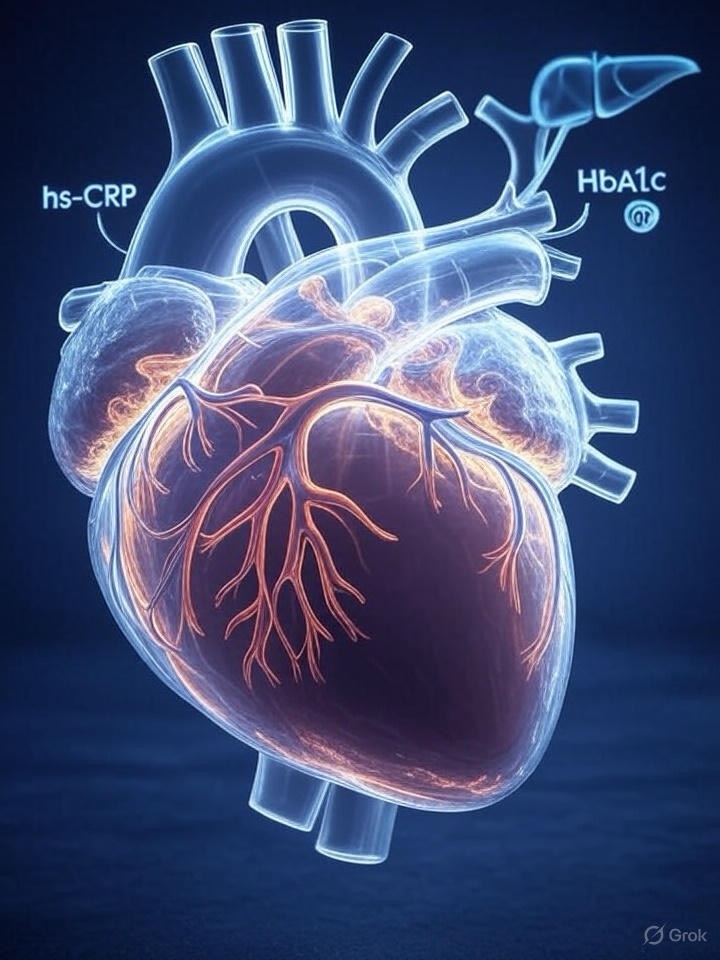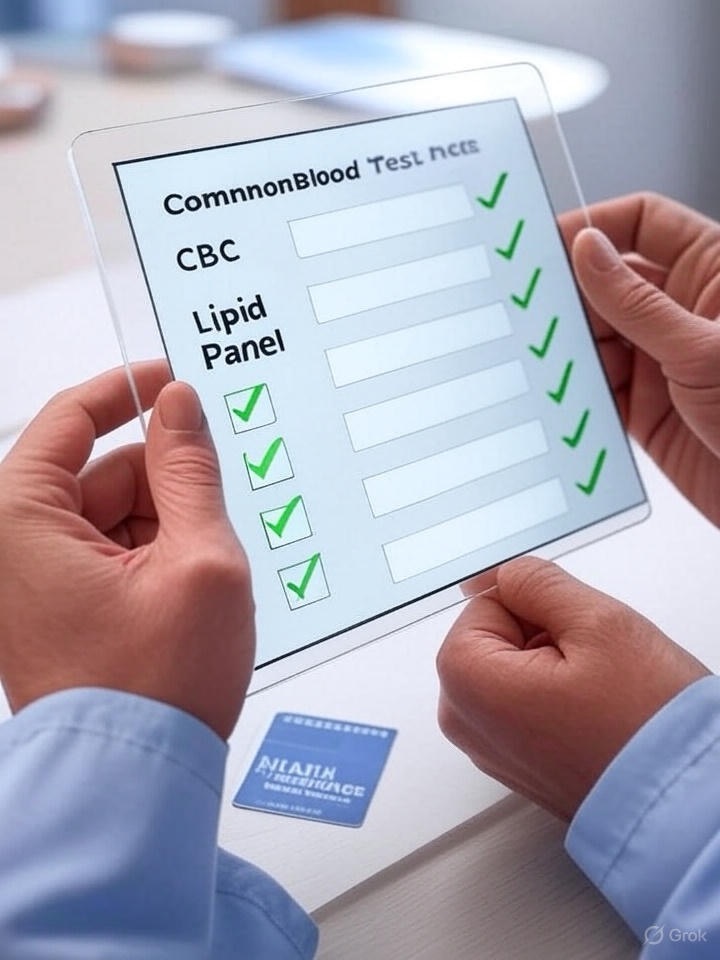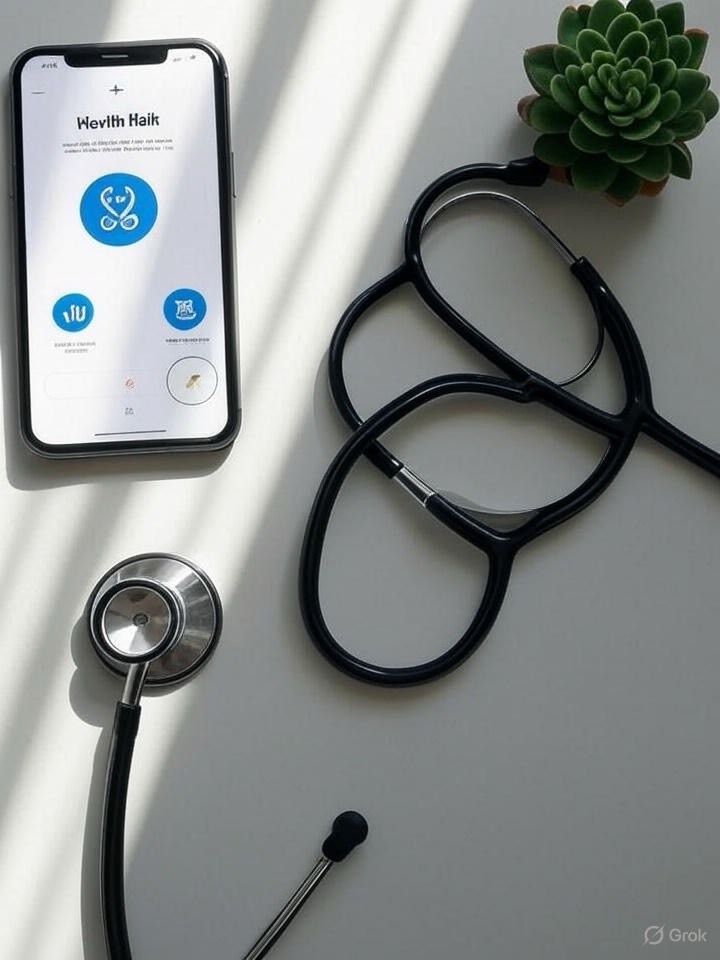Think of your body as a high-performance vehicle. You wouldn’t wait for the check engine light to flash before popping the hood, right? You’d get regular oil changes, tire rotations, and fluid checks to prevent major problems down the road.
Your health deserves the same proactive care. Blood tests are one of the most powerful tools we have to pop the hood on your health, offering a real-time snapshot of your inner workings. They can detect potential issues long before symptoms arise, allowing you and your doctor to take action early when it’s most effective.
While everyone’s health profile is unique, this decade-by-decade guide outlines the most important blood tests to discuss with your doctor to build a strong foundation of preventative health.
Your 20s: Building a Strong Foundation

Your 20s are often about setting the stage for your future. This is the time to establish baseline measurements and build healthy habits.
- Lipid Panel (Cholesterol): It’s not too early! Heart disease develops over time. Knowing your levels of HDL (“good” cholesterol), LDL (“bad” cholesterol), and triglycerides now allows you to make dietary and lifestyle changes that will pay off for decades.
- Complete Blood Count (CBC): This is a broad screening test that checks for anemia, infection, and even some vitamin deficiencies. It’s a great overall health indicator.
- Blood Glucose (HbA1c or Fasting Glucose): With rising rates of type 2 diabetes and prediabetes, establishing a healthy baseline for your blood sugar is crucial. The HbA1c test provides an average of your blood sugar levels over the past 2-3 months.
- Thyroid-Stimulating Hormone (TSH): Thyroid disorders, particularly in women, are common and can cause issues with energy, weight, mood, and metabolism. A simple TSH test can screen for an underactive or overactive thyroid.
- Vitamin D: Many people, especially those in northern climates or who work indoors, are deficient. Vitamin D is critical for bone health, immune function, and mood regulation.

Your 30s: Fine-Tuning and Early Detection
Life often gets busier in your 30s with career and family. Stress increases, and metabolism may start to slow down. Monitoring becomes key.
- Comprehensive Metabolic Panel (CMP): This expands on basic tests to include liver and kidney function, electrolytes, and blood sugar. It’s a fantastic overall health check.
- Lipid Panel (Revisited): It’s time to check back in on your cholesterol. Even if it was perfect in your 20s, diet and lifestyle changes can cause shifts.
- HbA1c (Revisited): Insulin resistance can begin to develop in this decade, making blood sugar monitoring even more important.
- Iron Panel (Ferritin): Especially important for women with heavy menstrual cycles, this test checks your iron stores. Low iron can cause severe fatigue and anemia.
- Fertility Hormones (if planning a family): For those considering children, tests like FSH, LH, and Estradiol can provide valuable insights into ovarian reserve and hormonal health.

Your 40s: Proactive Management
This is a critical decade for preventative health. The choices you make now significantly impact your quality of life in the years to come.
- HbA1c (It’s a must now): The risk for type 2 diabetes increases substantially. Annual or biannual screening is often recommended.
- Thyroid Panel (Revisited): Thyroid function can change with age. It’s wise to keep an eye on it, particularly if you experience new fatigue or weight changes.
- Liver Function Tests (part of CMP): This becomes more important as we assess the long-term impacts of diet, medication, and alcohol consumption.
- Inflammation Marker (hs-CRP): High-sensitivity C-reactive protein measures inflammation in the body. Elevated levels are a risk factor for heart disease.
- Vitamin B12: Our ability to absorb B12 from food can decrease with age. Deficiency can cause neurological issues, fatigue, and anemia.

Your 50s and Beyond: Staying Ahead of the Curve
The goal now is to maintain vitality, manage any existing conditions, and prevent age-related diseases.
- Comprehensive Heart Health Panel: This often includes the standard Lipid Panel but may add advanced tests like Apolipoprotein B (ApoB), a more precise marker for heart disease risk than LDL alone.
- Kidney Function Tests (eGFR, Creatinine): Kidney function naturally declines with age. Monitoring it is essential, especially if you have high blood pressure or diabetes.
- Vitamin D and Calcium: Bone health is paramount. Monitoring Vitamin D and calcium levels helps in the prevention of osteoporosis.
- Thyroid Function (Annual Check): Annual screening is recommended for women over 50 and men over 60.
- Testosterone Levels (for Men): Testosterone levels gradually decline, which can affect energy, mood, muscle mass, and libido. If symptoms are present, this test is worth discussing.

The Most Important Test of All: The Conversation with Your Doctor
This list is a general guide, not a prescription. Your personal and family history, lifestyle, and specific symptoms are the most important factors in determining which tests are right for you.
Always consult with your healthcare provider. They can help you create a personalized screening plan that empowers you to take control of your health, decade by decade.
FAQs
1. Do I really need blood tests if I feel perfectly healthy?
Answer: Absolutely. Many serious conditions, like high cholesterol, pre-diabetes, or early kidney disease, are “silent” and show no symptoms in their initial stages. Blood tests are a preventative tool to find these issues early when they are most treatable and often reversible through lifestyle changes.
2. How often should I get these tests done?
Answer: For most healthy adults, a comprehensive set of tests every 1-3 years is a good rule of thumb to establish trends. However, frequency depends on your age, existing health conditions, family history, and your doctor’s recommendations. For example, if you have pre-diabetes, your doctor may want to check your HbA1c every 6 months.

3. Will my insurance cover the cost of these tests?
Answer: In most cases, yes. If your doctor orders the tests as part of a routine preventative check-up—especially if you have a family history of a certain condition—health insurance plans (including Medicare) often cover them fully under preventative care benefits. However, it’s always best to check with your specific insurance provider to understand your coverage and any potential out-of-pocket costs.
4. What do I need to do to prepare for a blood test?
Answer: Preparation depends on the specific tests ordered:
- Fasting: For a lipid panel (cholesterol) or fasting blood glucose test, you will typically need to fast for 9-12 hours beforehand (drinking only water). Your doctor will give you clear instructions.
- No fasting: Tests like a CBC, thyroid (TSH), or Vitamin D often don’t require fasting.
- Hydration: Being well-hydrated makes it easier to draw blood.
- Medications: Always inform your doctor about any medications or supplements you are taking, as they can affect results.
5. What if my results are outside the “normal” range?
Answer: Don’t panic. An “abnormal” result is not always a diagnosis; it’s a signal for further investigation. It could be due to:
- A temporary issue like a recent illness or dehydration.
- A need for simple lifestyle changes (diet, exercise).
- A need for more specific diagnostic testing.
Your doctor will interpret the results in the context of your overall health and create a plan with you, which may include monitoring, treatment, or seeing a specialist.
6. Are at-home blood test kits accurate and reliable?
Answer: The accuracy has improved significantly, and many reputable companies offer reliable kits. They are a convenient option for getting basic data. However, they are not a substitute for a doctor’s care. A healthcare professional can:
- Interpret the results in the full context of your health.
- Account for factors that a machine-generated report cannot.
- Diagnose conditions and prescribe treatment.
Think of at-home tests as a starting point for a conversation with your doctor, not the final word.

7. The article is general. What if I have a specific health condition or a strong family history?
Answer: This guide is a starting point for generally healthy individuals. Your personal and family history is the most important factor. If you have a condition like diabetes, a family history of heart disease, or are on specific medications, your testing needs will be different and more frequent. Always follow the tailored screening plan created by your doctor.
8. I’m scared of needles. What can I do?
Answer: This is very common. You can:
- Inform the phlebotomist: They are experts and can make the process much easier.
- Look away: Don’t watch the needle going in.
- Use distraction: Listen to music, a podcast, or focus on deep breathing.
- Ask about numbing cream: A topical anesthetic can numb the skin beforehand.
Remember, the momentary discomfort is well worth the valuable information gained for your long-term health.
9. Where can I get these tests done?
Answer: Blood draws are typically performed at:
- Your primary care physician’s office.
- Dedicated diagnostic labs (e.g., Quest Diagnostics, Labcorp).
- Some hospitals and outpatient clinics.
Your doctor will usually provide you with a requisition form to take to one of these facilities.
10. Can I just request these tests myself?

Answer: This depends on where you live. In some places, you can order your own labs through direct-access testing services. However, in many regions, a doctor’s order is still required. Even if you can order them yourself, it is highly recommended to discuss your desired tests with a doctor first to ensure you’re getting the right ones and to have a professional ready to interpret the results.

